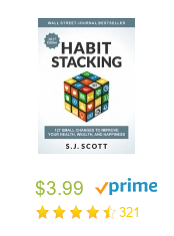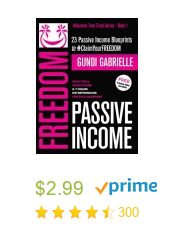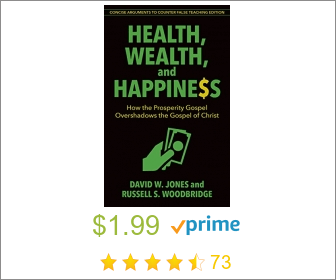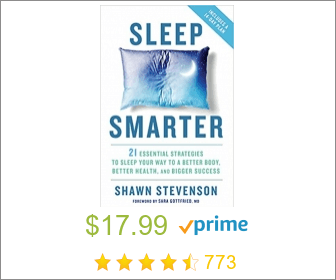
7 Answers To The Most Common Questions About Home Loans

What You Need To Know About Home Loans
Do you want to buy your dream house? Buying a new house is exciting, but you should not forget the financial side of it. In that case, you are probably thinking about getting a home loan. Before getting a loan, learn about the common terminologies so that you'll be more aware of what's going on.
Below, you will discover some important details about home loans that will help you in choosing the right type of loan, understanding its possible effects, and processing it more efficiently. Through this article, you will discover what debt ratio and payment shock is, among others. The more familiar you are with these terms, the better you'll be able to handle your search for a suitable home loan.

1What Are Debt Ratio Standards?
Debt ratio standards are not strict laws, and almost all types of loan programs have them. There are several loan programs, and each of them has specific ratio standards. Even though certain loan plans are part of the same loan program, these could be governed by different rules. There are also various ratios that depend on the amount of down payment given.
Many believe that such loan rules should no longer be applied since only a few follow them anyway. Maybe some new loan officers will abide by such standards, but most experts in the industry have a different view regarding these. In addition, avoid doing your own pre-approval before talking to a lender about your situation, because you will be better off and you'll be less stressed if you know exactly how much you can truly afford.

2How Much Home Loan Can One Afford?
Do you think that your mortgage payment should amount to a third of your monthly gross income? Avoid starting your house hunting with that in mind. In case you are unsure about what your best debt ratio is, look at how much you are currently paying to compare. Let's say that you are presently paying $1500 every month for rent, so start there.
In case you've been struggling to pay your monthly dues, then perhaps you should opt for a lower amount so that your future mortgage won't put so much strain on your finances. In addition, if you believe that you can pay double of that amount and still continue to live comfortably, then start with that. But always take important financial factors into consideration.

3What Exactly Is Payment Shock?
Most people who lend money use the term "payment shock." This refers to the percentage difference between the total sum that you are currently paying and the total amount of your future new payment. Most loan companies do not have provisions regarding payment shock, but those who do often yield the same percentage, which is 150%.
To illustrate, let's say that you regularly paid $1500 before. This means that your payment shock will amount to $2500 or 150% of $1500. Perhaps, you may think that it's fine to pay twice the amount of what you are presently paying; however, there are certain payment shock guidelines in underwriting, which would state that such a strategy is quite risky.

4Can One Find A Payment Shock Provision?
When a loan includes a payment shock provision, you will notice a percentage included in the loan guidelines. In case you exceed the amount stated in the shock guideline, you may be required to obtain an exception. Loans that do not include such guidelines will likely add these when there are some issues regarding a certain borrower's qualifications. If you have no idea about how much you should pay for your house every month, discuss this with your lender and, if possible ask your lender to consider your debt ratios, and use the information to qualify you for a mortgage.
In case your lender agrees, he will take your information and give you an advised loan amount that is based on the current interest rates, property taxes, as well as home insurance fees. Try to apply for a loan, especially if you don't obtain the amount that you prefer. More often than not, people take a step back and defer from making an offer, once they have computed their debt ratio and obtained a score of 35 instead of the preferred 33.

5What's The AUS And What Is It For?
The Automated Underwriting System (AUS) is a new tool that is being used today to assess loan applicants. Debt ratios focus more on the historical affordability model, while AUS has the capability to analyze all existing data at the same time. In the past, if most of your loan programs had a debt ratio of 38, you will be advised to get a smaller loan or buy something less costly. The main reason here is that the higher the debt ratio, the more likely a person will default on his loan.
But drastic changes occurred when the AUS arrived, and the debt ratios are no longer the main factors that are used to tell whether a person is qualified or not. A large percentage of Automated Underwriting Systems are managed by Freddie Mac (Federal Home Loan Mortgage Corporation) and Fannie Mae (Federal National Mortgage Association). Still, the ratios are not completely disregarded, but these have become guidelines that can be followed rather than strict rules to be abided by. Essentially, AUS is a software program that helps lenders in expediting the loan assessment process.

6Are Loans Quick To Process?
These days, processing a loan is faster than ever, so consumers have more chances to obtain some money. It's best to submit an AUS application right away. If you don't have any major issues regarding your file, submit this right away; small problems, like having no income or no co-borrower can be readily dealt with. Still, be aware that the documents that you provide or do not provide will help in determining the degree of approval.
The approval degree does not actually mean that an application has been partially or fully accepted. You are accepted, but your payment approval will be affected by the amount or type of documentation you provide. In case your credit is excellent, you will likely be asked to present the usual documentation, to have significant cash on hand, and to provide a higher down payment; compared with someone who has poor credit, wherein a smaller down payment is asked but with higher ratios.

7Why Is Credit The Most Vital Factor?
When it comes to AUS programs, the factor that is considered most essential is a consumer's credit. More relaxed ratios await those who have credit scores of 700 or more. Next to credit, reserves are the next crucial factors. Reserves pertain to investments, money in the bank or savings, retirement accounts, and other assets that a borrower will still have after closing.
You actually have an "affordability index," and this is ascertained by estimating the reserved balance after closing procedures. The final important factor is, regarding the loan-to-value percentage or the value that determines the level of equity of a certain property. In case you were only able to provide a 5% down payment, your ratios are less likely to exceed your guidelines. On the other hand, if you came up with 20% or more for the down payment, you will have a bigger chance of borrowing more than what you were hoping for.
These are only some terms and issues regarding the process of getting a loan. If you want to buy a house today, start evaluating your home financing options as soon as possible. Although you may get approval quickly, the next phase, which is the negotiation proceedings, could take some time. With some diligence, you will readily get a good home loan deal!
About Author
Jackie Wing
GET THE FREE MAGAZINE DELIVERED STRAIGHT TO YOU:









































